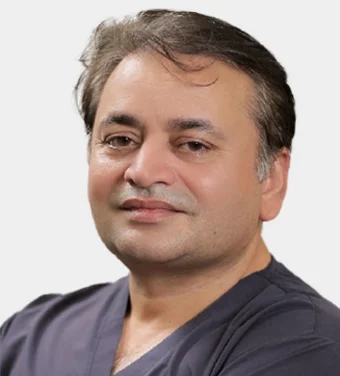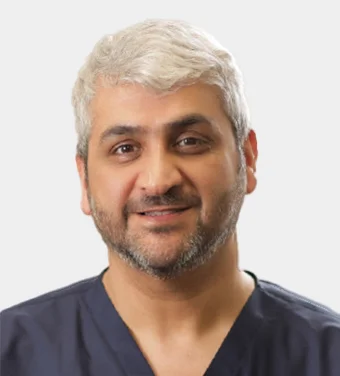
IBS Hospital offers state-of-the-art treatment for colloid cysts, utilizing the latest surgical technologies. Our dedicated neurosurgeons provide personalized care, focusing on minimally invasive procedures for optimal outcomes and quicker recovery.
What is a Colloid Cyst?
A Colloid Cyst is a non-malignant, fluid-filled mass that typically develops in or around the anterior third ventricle of the brain. The cyst is filled with a proteinaceous fluid that consists of mucin, old blood, cholesterol, and ions. Colloid cysts can obstruct the normal flow of cerebrospinal fluid. These account for 15 to 20 percent of all cysts that develop within the ventricles. Colloid cysts are very rare, comprising only about 2 percent of all brain-originating tumors. They primarily affect adults, especially those in their 40s and 50s.
What are the symptoms of Colloid Cysts?
A person with a Colloid Cyst typically does not experience any noticeable symptoms, and these generally tend to develop when intracranial pressure increases due to the disrupted flow of cerebrospinal fluids. Common symptoms that may be experienced include:
- Severe headaches
- Headaches that worsen in the morning
- Nausea and vomiting
- Blurred vision
- Changes in behavior and personality
- Memory loss
- Diplopia or double vision
What are the causes of Colloid Cysts?
The underlying cause of Colloid Cysts is not known; however, it is believed that they begin developing during embryonic development.
How are Colloid Cysts diagnosed?
Colloid Cysts are generally diagnosed using detailed imaging modalities, which include:
- Magnetic Resonance Imaging (MRI)
- Computed Tomography (CT scan)
How are Colloid Cysts treated at IBS Hospital?
At IBS Hospital, some of the common treatment options available for Colloid Cysts include:
- Drainage of cerebrospinal fluid to relieve intracranial pressure.
- Surgical removal of the cyst, either by neuro-endoscopy or by using advanced microsurgical techniques.
Our team of experts that make it possible
Meet the team of highly specialised and experienced neurosurgeons, neurologists, orthopedicians, and other experts in the field of neurology and spine care. Our team is dedicated to providing personalised and compassionate care to each patient, with the goal of helping them achieve the best possible outcomes.

Dr. Vikas Gupta
Senior Neurosurgeon

Dr. Dewaker Sharma
Senior Neurosurgeon

Dr. Sachin Kandhari
Senior Neurosurgeon

Dr. Anup Gogoi
Senior Neurosurgeon

Dr. Ankur Dhandha
Anaesthetist

Dr. Gaurav Sharma
Senior Sports Physiotherapist

Dr. Sachin Samuel
Senior Neuro Physiotherapist

Dr Ankush Arora
Anaesthetist

Dr Amarjyoti Yadav
Anaesthetist
IBS Hospital Empowers Your Treatment with Cutting-edge Technology
We continuously incorporate cutting-edge technologies from around the world into our offerings, such as a surgical system that allows for precise and confident complex procedures. We use magnetic stimulation to treat certain neurological conditions and create personalised brain maps for tailored treatment plans. Nerve monitoring during surgeries ensures the nervous system is not compromised, and a robotic exoskeleton aids in mobility issues. Our goal at IBS Hospital is to provide the best care possible, utilising the latest and most innovative technologies available.


